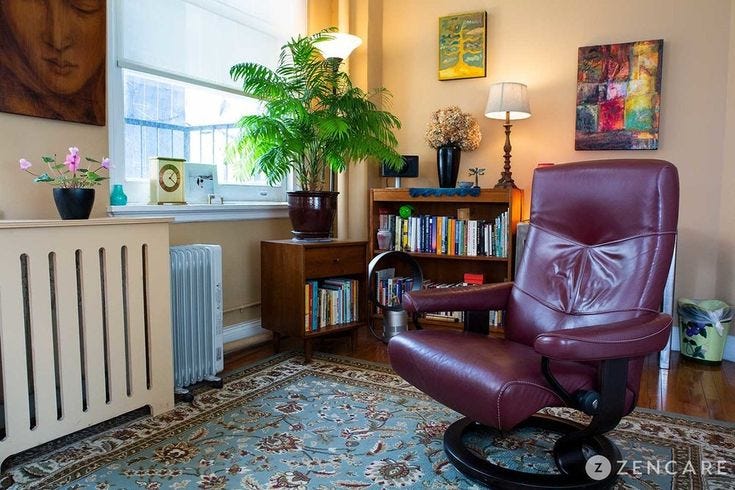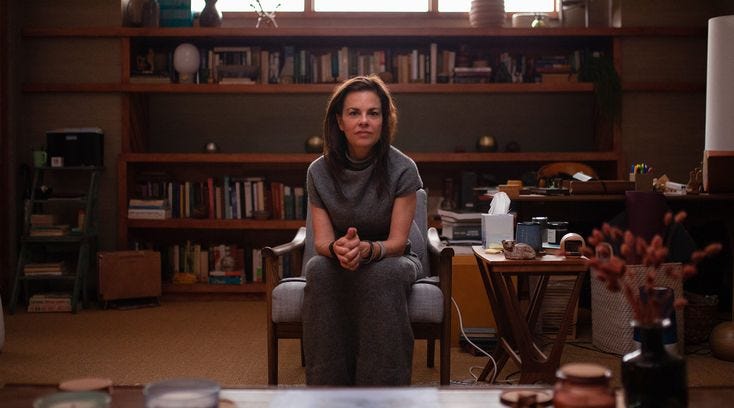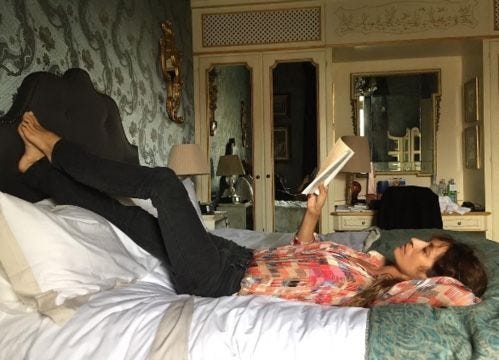there was a time, not too long ago, when healing was something you did in a room with someone who asked you to slow down. someone whose job wasn’t to impress or soothe, but to sit there, across from you, and stay, even when your words weren’t beautiful. even when your truths didn’t fit into sentences. therapy then was a relationship, a rhythm, a room with no applause. but now, healing has become a performance. a self-brand. a carousel of curated wisdom we pin to digital walls, hoping it will become real. i was in university when i first realized i was mistaking language for progress. i had learned to say things like “i’m experiencing dysregulation,” and “this might be a trauma response,” long before i could recognize the feeling of my breath shortening or my fingers curling into fists. i could narrate my wounds with impressive coherence, all while being completely disembodied. it felt like growth because it looked like growth. i knew the right words. i had the aesthetic bookmarks. i was fluent in captions about healing. but the truth was: i hadn’t yet learned how to sit with myself.
social media, for all its gifts, offers the illusion of immediacy. the architecture of the feed rewards self-awareness without integration, speed over depth, resonance without rupture. it teaches us that if we can name it, we’ve survived it. that if we’ve posted about it, we’ve healed it. but the nervous system doesn’t learn from hashtags. and emotional intimacy doesn’t develop on a timeline designed for virality. there’s a difference between being self-aware and being self-attuned. i had the former long before i found the latter. the more i consumed digital therapy content, the more emotionally articulate i became — and yet, paradoxically, the more internally disconnected i felt. it was like building a library in my mind while leaving the body unread. i could recite theories from gabor maté and phrases from esther perel, but when it came to being in conflict with someone i loved, i still defaulted to people-pleasing or withdrawal. nothing about that moment asked me if i knew what cognitive reappraisal was. it asked me if i could stay present through the discomfort of not being liked.
there’s a strange thing that happens when you become good at talking about yourself. people assume you’re healed. you assume it too. you think the insight is the end point, when really, it’s just the invitation. knowing that your fear of abandonment comes from early attachment wounds is helpful. but it doesn’t teach you how to regulate your breathing when someone doesn’t text back. it doesn’t teach you how to resist sending the double text. it doesn’t teach you how to wait. and that’s where social media often fails us. it romanticizes insight. it stylizes growth. but it cannot teach the slow, unglamorous discipline of staying in your body when everything in you wants to escape. the internet is full of instructions for becoming, but not enough space for being. not the messy, inarticulate kind. not the kind that doesn’t make for good content.
i’ve noticed how therapy language has become its own dialect — a kind of aspirational vernacular that flattens real emotion into keywords. we say “triggered” instead of hurt. “boundaries” instead of preferences. “energy” instead of attention. these aren’t bad words. but when they become placeholders for deeper feeling, we lose the ability to articulate our experience without pre-packaging it. we stop asking, what do i feel? and start asking, how do i say this so it sounds healthy? and then there’s the pressure of performance. once healing becomes visible, it becomes a metric. once self-awareness is shared, it becomes a product. this isn’t just about creators — it’s about all of us. the pressure to present your pain as polished, your grief as wise, your trauma as something that has already taught you something useful. we edit the mess out of our process. we compress nonlinear growth into digestible arcs. and in doing so, we subtly begin to believe that if it can’t be posted, it isn’t real progress.
but healing doesn’t look good on camera. it looks like repetition. like circling the same wound again and again, each time with slightly more compassion. it looks like crying in your kitchen for no reason you can explain. it looks like cancelling plans and taking three naps. it looks like writing something vulnerable and then deciding not to post it. it looks like silence. stillness. sometimes it looks like nothing. when i finally started seeing a real therapist — not a screen, not a story, but a person — i was surprised by how slow it felt. there were no breakthrough moments with soft jazz in the background. no poetic quotes. just awkward pauses and long exhales. but those pauses taught me more than any infographic ever could. they taught me to wait. to listen. to feel something in real time instead of interpreting it.
and there’s something else: healing in real life often contradicts the brand of healing online. sometimes it means being less nice, not more. less understanding, more boundaried. sometimes it means admitting that you are not ready to forgive. that you are still angry. that you still flinch at kindness. sometimes it means telling the truth that doesn’t get claps — like, i don’t know how to love without performing usefulness. or, i think i want to be seen more than i want to be known. these aren’t beautiful truths. but they are honest ones. and real therapy doesn’t ask us to look beautiful. it asks us to look closely. i think we forget that therapy is not a set of tools. it’s a relationship. one that unfolds in time, with imperfection, with contradiction. the work is not to become efficient at healing. the work is to become more human through it. and humanity is messy. resistant. unpredictable. it doesn’t fit in a swipeable format. it spills out. it forgets the plot. it stutters and doubts and tries again.
there’s also a collective layer to this. the rise of “therapy culture” online, especially in the west, has often ignored its cultural bias. not everyone grows up in a system where speaking about feelings is encouraged. not everyone has the language or the space to narrate their emotions with clinical elegance. and yet, the internet often treats self-expression as the highest form of self-knowledge. but what about those who heal in private? who don’t want to be vulnerable for an audience? whose silence is not repression, but preservation? healing is not a single dialect. it is polyphonic. it changes depending on culture, class, body, access, history. and yet, the digital version of it can feel strangely homogeneous — beige aesthetics, minimal fonts, therapy-speak diluted into commercial slogans. i think often about audre lorde writing, “caring for myself is not self-indulgence, it is self-preservation.” the original context was political, embodied, radical. now, it’s been turned into a slogan for spa discounts. this is what happens when something sacred becomes brandable. the original texture, the resistance, the rawness — all of it gets smoothed out into something palatable. something profitable. and in the process, we lose what made it powerful.
i don’t think the solution is to delete social media. i think it’s to remember that healing is not an aesthetic. that knowing the words doesn’t mean you’ve done the work. that some of the most transformational experiences of your life will not be legible to the feed. they will happen when no one is watching. they will happen on the second week of a depressive episode, when you manage to take a shower and make yourself lunch. they will happen when you choose not to text someone back, even though you’re craving validation. they will happen when you learn how to pause, not to post. there are still days when i catch myself reaching for my phone instead of my breath. when i scroll through other people’s breakthroughs and wonder if i’m behind. when i feel the need to package my pain into something useful. but then i remember — healing isn’t something i owe the internet. it isn’t something i need to narrate to make real. it’s something that happens, quietly, stubbornly, imperfectly, inside me. and that might be the most radical thing i can do, which is, to allow it to stay there. undescribed. unfiltered. unshared. still true.








as a licensed therapist who meets with people one-on-one and posts therapy related content online, this is GOLD. more and more i sit with clients who are articulate in self-help language but struggle to integrate it.
because it’s experience that actually changes us, not merely information. And we’re scrolling from info to info, without taking the time to let any of it actually seep in. our brains weren’t made for that.
if you see a good post that resonates with you, don’t just save it. text it to a friend and say “hey i wanna talk about this.” and get on the phone and have a real convo about it. the experiences like that (and therapy 😏) is what will change us over time.
beautiful article!!
Love, love, love this article. I connect deeply reading this.